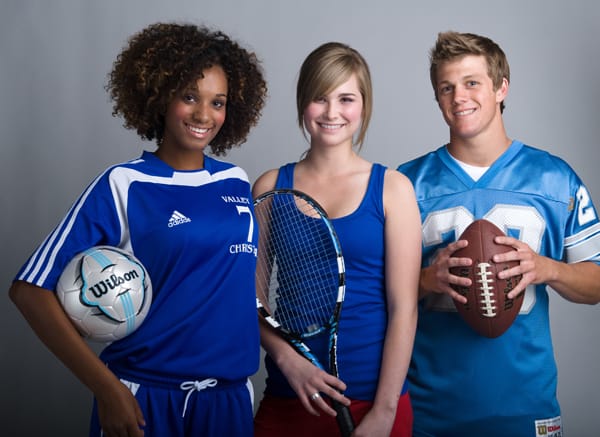4 Ways to Balance Teen Sports with Academics
Teen sports are crucial for your child’s holistic development. Your child may not be athletic, but being involved in at least one sport provides the following benefits:
Sports keep your child active. An article published by the Public Health Agency in Canada in the US National Library of Medicine National Institutes of Health Journal states that approximately 1 in 7 children in Canada were obese in 2016. Obesity is a real problem caused by a poor diet and a sedentary lifestyle. Encouraging your child to actively engage in a sport reduces the risk of obesity.
Sports provide a boost to mental health. In fact, studies show that the brain’s structure grows when children and adults engage in sports. Teen sports also help improve your child’s memory, concentration, and positive outlook on life (due to the release of endorphins.)
Teamwork is an essential soft skill developed in teen sports. Most sports require teens to strategically work together to win. Teamwork is a skill that is needed now more than ever before in the workplace.
It would be safe to assume that knowing these benefits would cause teens to jump at the opportunity to become actively engaged in a sport. However, several teens shy away from sports because they’re unable to balance the demands of sports with the demands of academics. Here are 5 strategies you can use to help your teen strike the balance.
Develop strong time management skills
Teen sports often create hectic schedules. Moving from school to training to matches and championship games can be exhausting and overwhelming. It doesn’t help those teachers pile on assignments and other assessments that your teen must complete. Time management is paramount. Your teen must take advantage of study halls, free sessions, and travel time between school, training, and matches.
Eliminate procrastination
There will be times when your teen needs a break. Rest and relaxation are important. Help your child nip procrastination in the bud by completing tasks in a timely manner instead of waiting until the last minute. It’ll be a horrible experience to try to play catch up. Your child must develop the habit of being proactive instead of reactive from an early age.
Get support from other team members
One person’s weakness is another person’s strength. There are some students on your teen’s sports team who are able to excel at both sports and academics. It may help your teen to have discussions with these peers to find strategies that work. The advice given can prove invaluable.
Teen Sports and academics are demanding. Both are, however, necessary for your child’s holistic development. The strategies outlined in this article can help your teen strike the right balance. Feel free to contact Tutors on Call to schedule tutoring sessions for your active teen.

